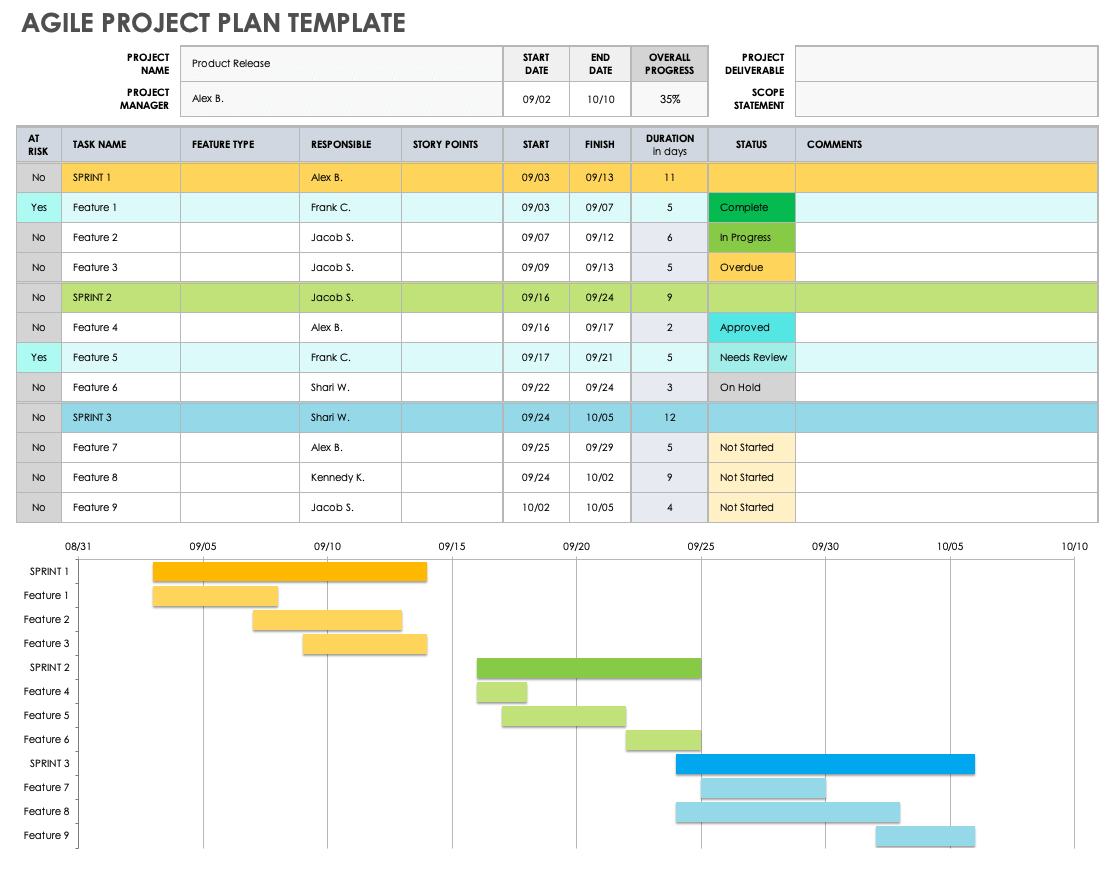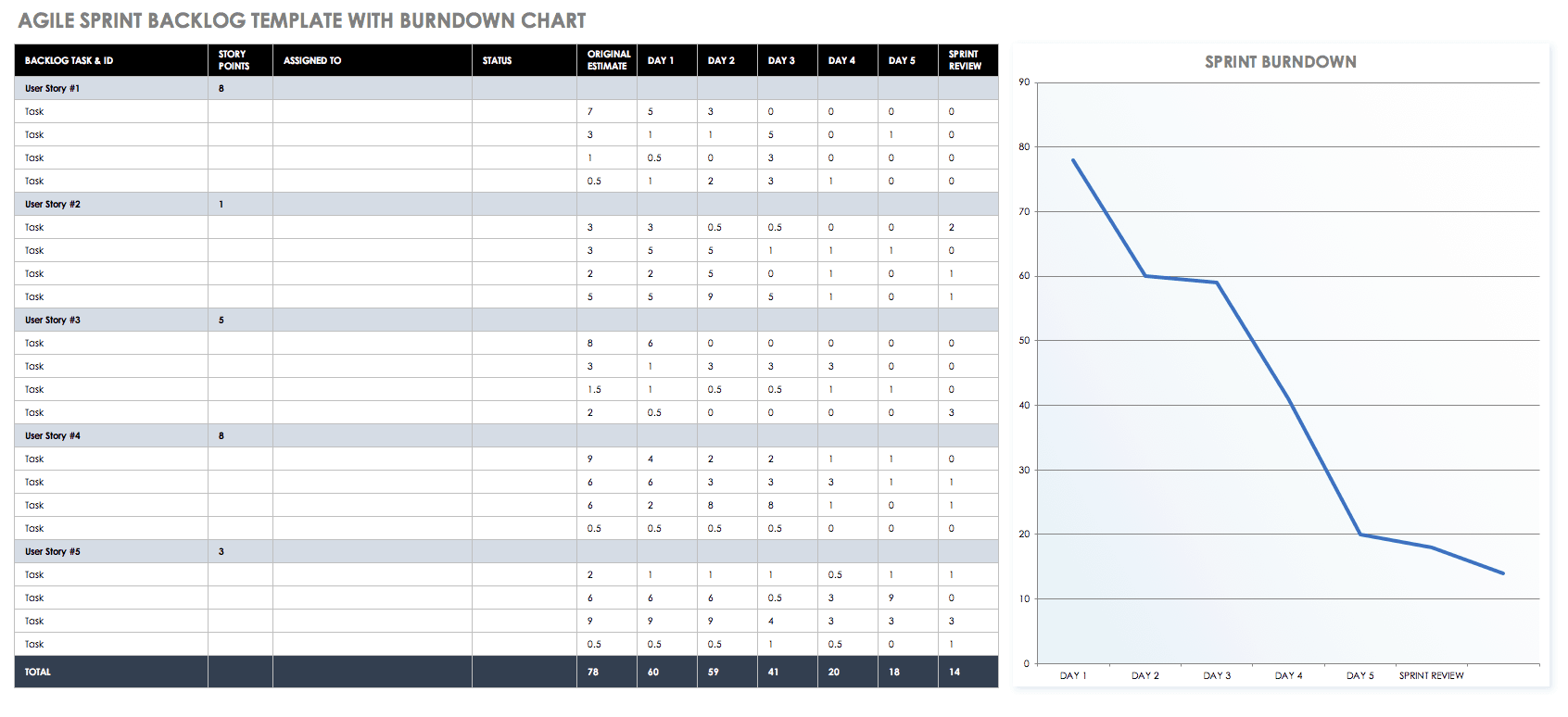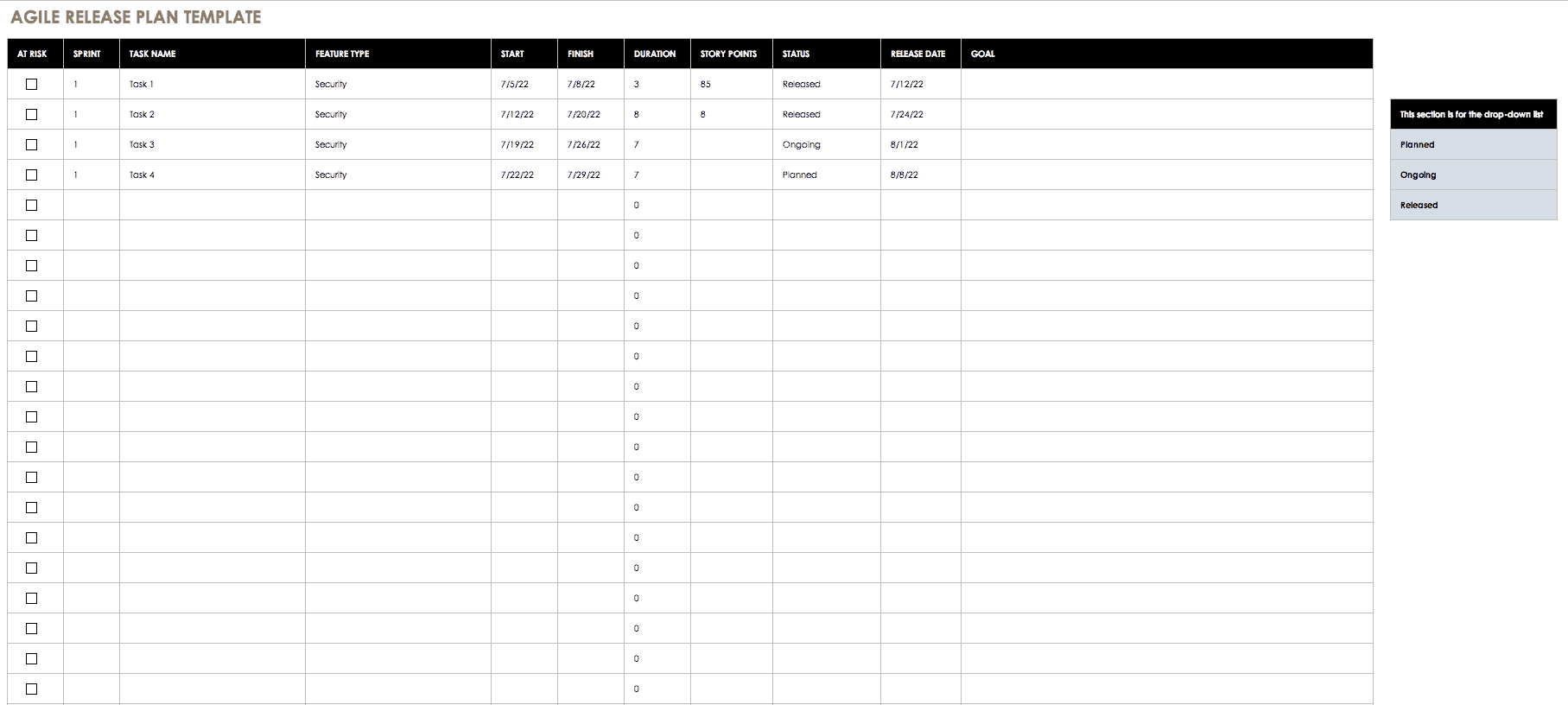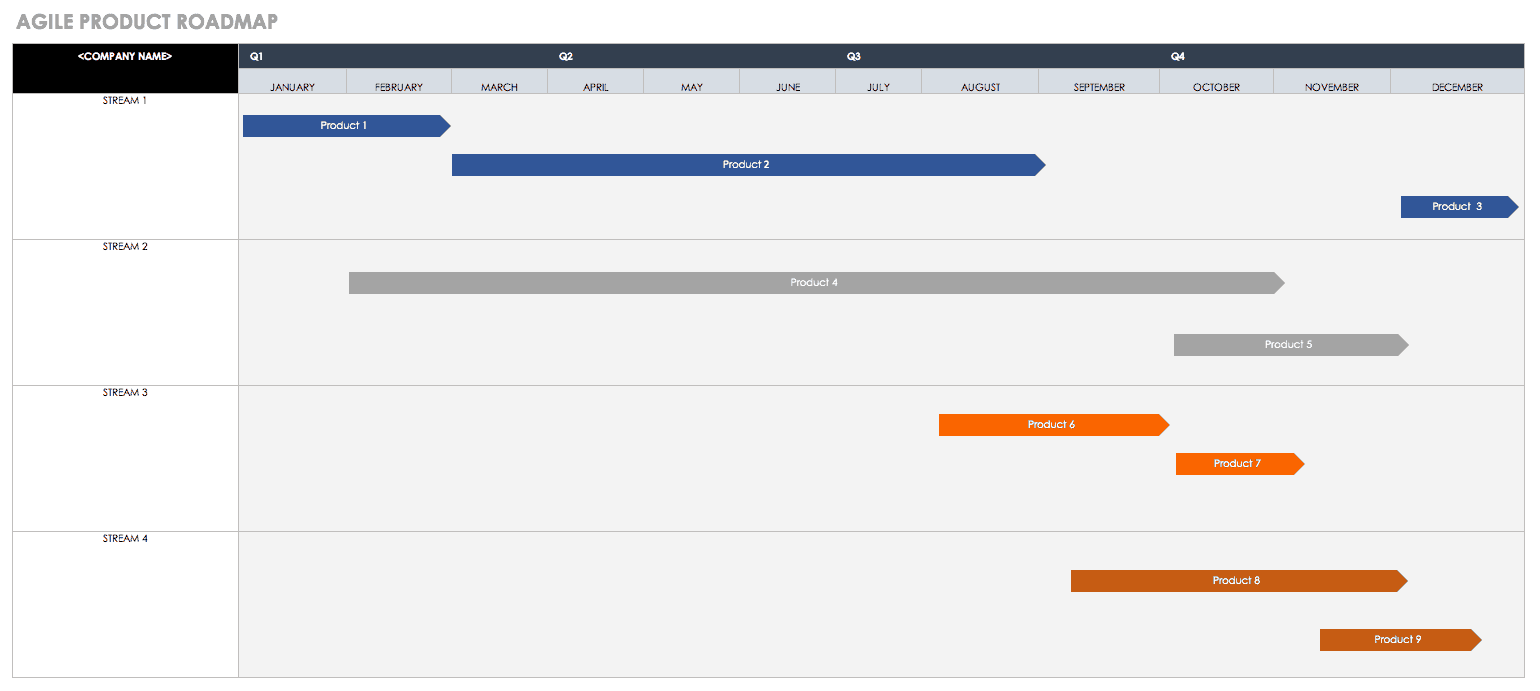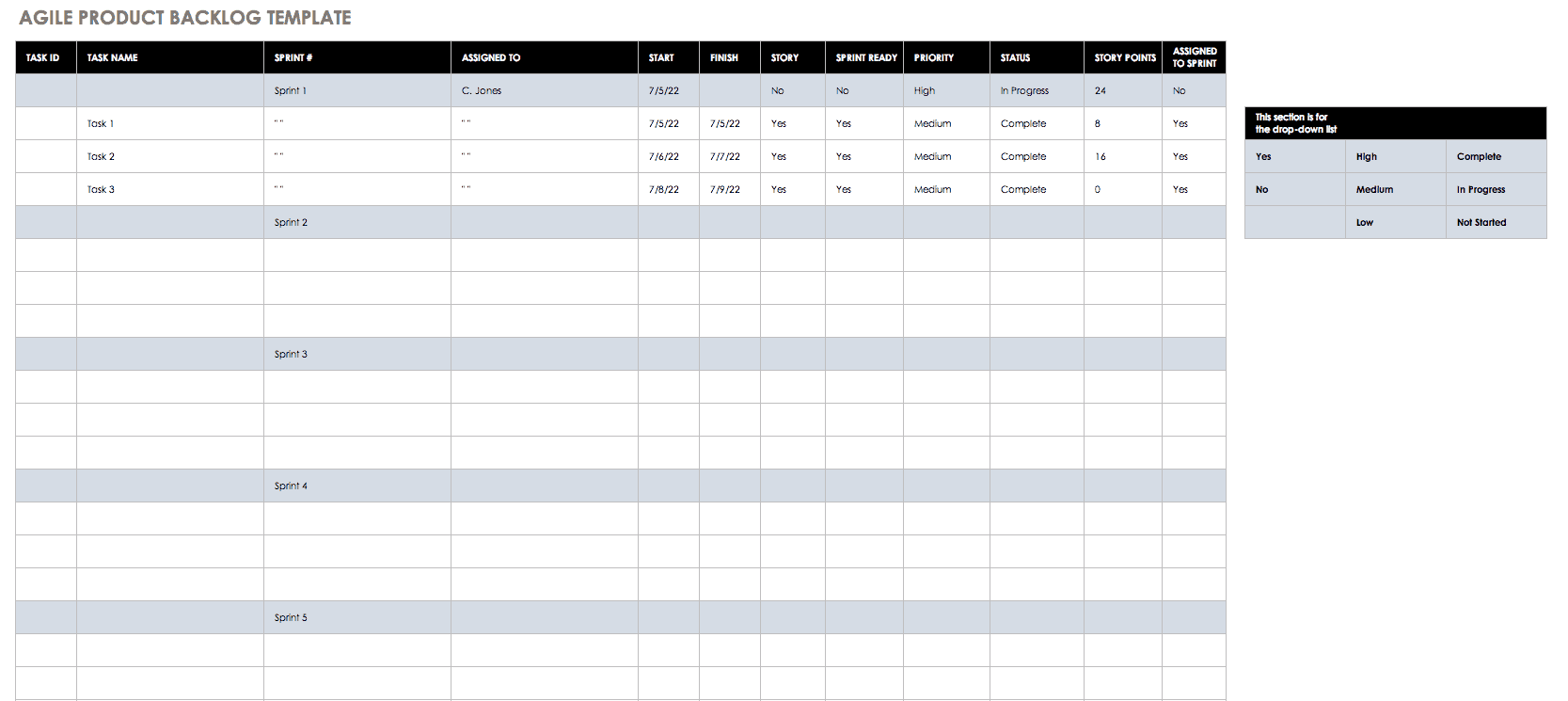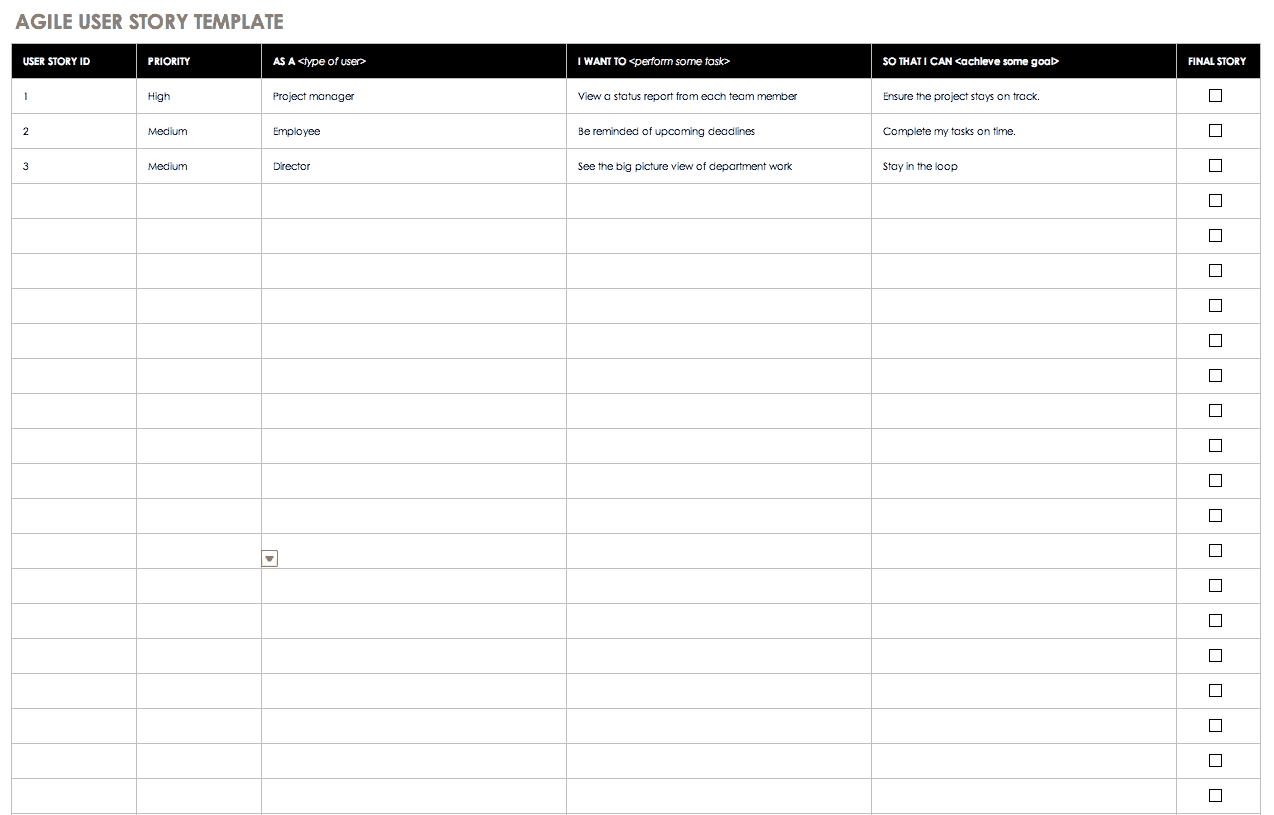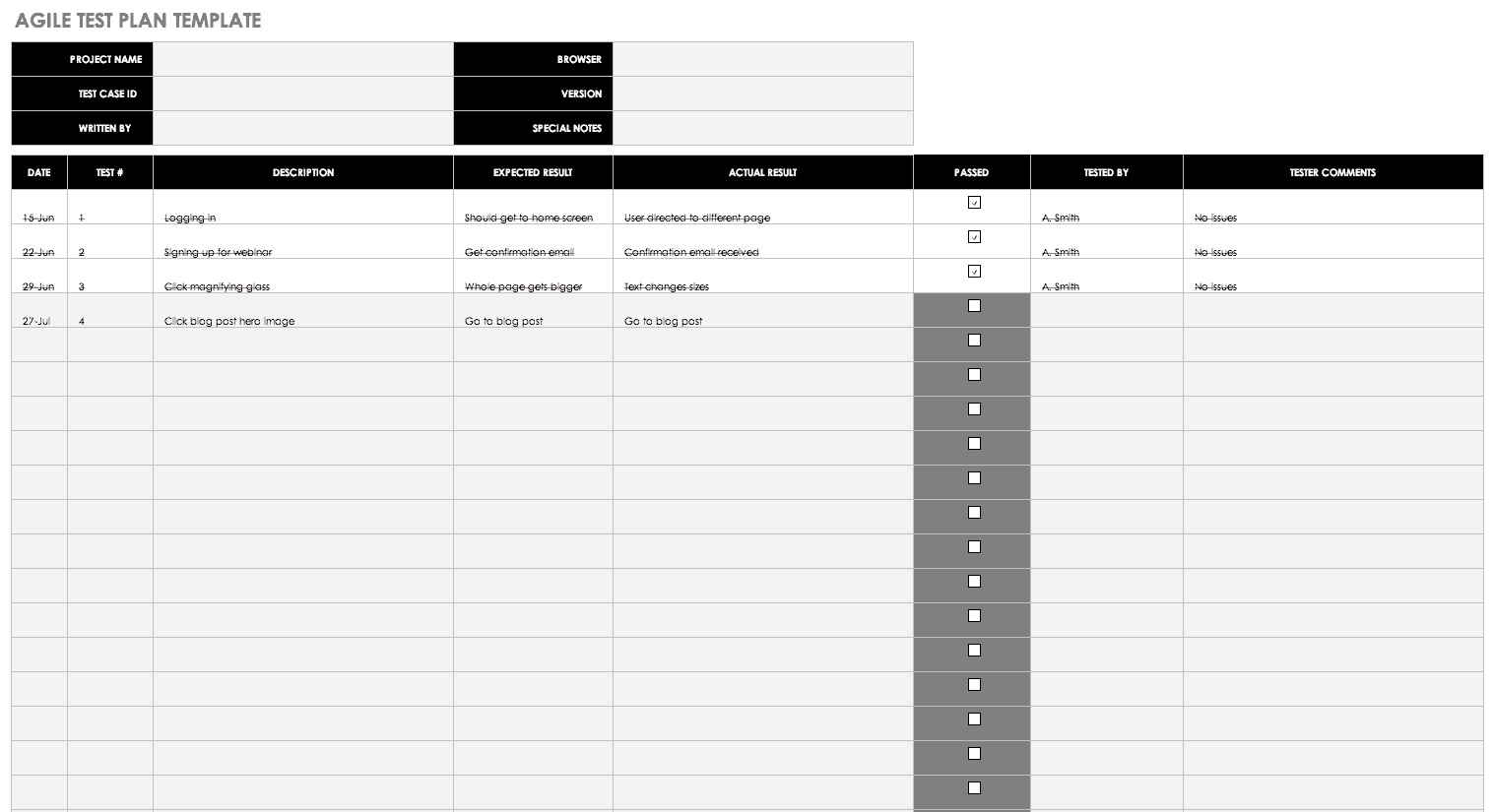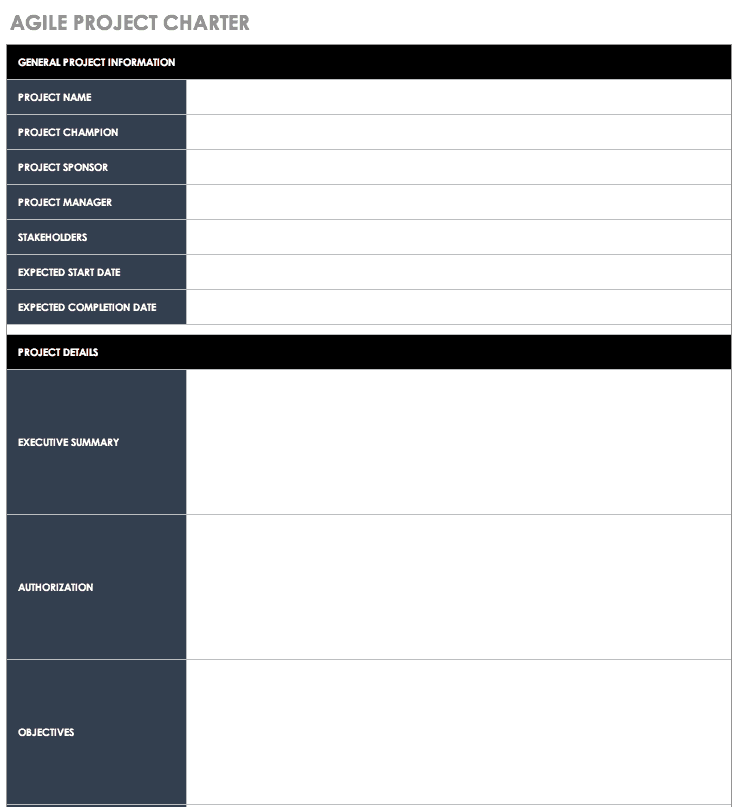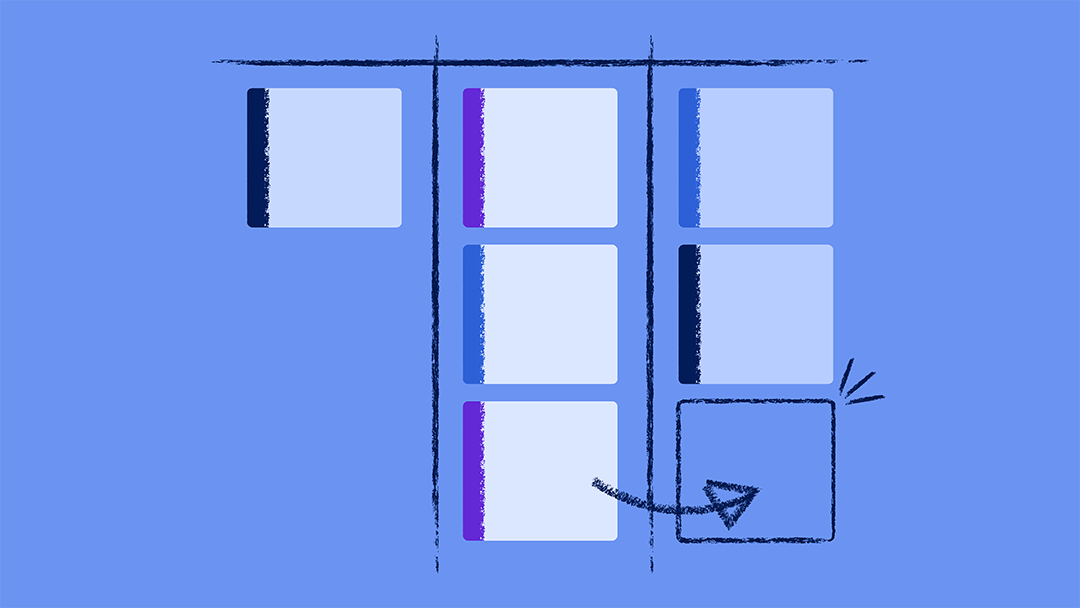Agile Project Plan Template
Download Excel Template Try Smartsheet Template
An agile project plan is based on features. The plan estimates how long it will take for each feature to be delivered, without much detail on how it will be delivered. And because the project plans are focused on features, you can group similar features into sprints.
An agile project plan is always changing. Once the plan is developed, the project team needs to maintain it and update status and timelines accordingly.
Also known as an agile project schedule, this template lets you add your tasks, who is responsible, start and end dates, and status. The duration for each task will be automatically calculated. This template also features a Gantt chart (a visual representation of your project timeline), which will automatically adjust when you add your own data to the table.
Note: when you add your own dates to the table, the Gantt chart will automatically adjust, however you may notice that there is a lot of white space at the beginning of your chart and it may display dates you did not enter. You can fix this by adjusting the spacing between the dates. Right-click on a date at the top of your Gantt chart and select Format Axis. In the pop-up box, on the left, select scale. Adjust the number in the box labeled Minimum. You will have to add numbers incrementally to adjust the spacing and get it to look the way you’d like.
Agile Sprint Backlog with Burndown Chart Template
Download Excel Template Try Smartsheet Template
Also known as a scrum backlog, the sprint backlog is created during agile sprint planning, where the team will select the top items in the product backlog and add them to their sprints. The sprint backlog includes all the work pushed into the development phase. It is a to-do list of backlog items that must be completed in the current iteration and this list should be very finalized (no one should be adding or removing tasks).
This template has columns for backlog item, story points, responsible, status, and original estimate. In the day 1 through day 5 columns, you can add the number of extra development hours required each day for the task. In the Total row at the bottom, you’ll see the total amount of extra development hours for each day for all tasks in the sprint. The burndown chart then represents this outstanding work.
Agile Release Plan Template
Download Excel Template Try Smartsheet Template
Agile release planning happens during sprint zero, when there is no product to deliver and the team can instead focus on defining the release goal, the features that need to be delivered, assigning features to a sprint, and estimating the duration of each task. Release planning may change as new stories are added or deleted.
This agile release template allows you to list all your tasks, assign each task to a sprint, and calculate the duration based on start and end dates. You can also indicate the status of each task from the drop-down menu and define each corresponding goal.
Agile Product Roadmap Template
Download Excel Template Try Smartsheet Template
An agile roadmap represents a strategic overview of where the product is headed in the mid-to long-term. It steers the direction of your product and sets expectations within your company. A traditional roadmap can sometimes act as a strict project plan, but in an agile organization, the roadmap just provides guidance and clarity.
The product roadmap can span months, quarters, or years. This template includes Q2, Q3 and Q4 for 2016 (you can always change the grey row to span the length of time you’d like). Each arrow represents a product and shows the estimated length of time required to deliver. You can color code the arrows by stream, by product type, by status, or more.
Agile Product Backlog Template
Download Excel Template Try Smartsheet Template
A product backlog helps the product owner keep track of all the features that stakeholders would like to include in the product. In other words, the product backlog is kind of like a wish list of all possible features in the final product.
Unlike a sprint backlog, the product backlog is always changing and improving. Anyone can add features to the product backlog, with the product owner prioritizing each one.
This agile product backlog template includes drop-down columns for story, sprint ready, priority, status, story points, and assigned to sprint. It also automatically calculates the total story points for each sprint based on the points for each task.
Agile User Story Template
Download Excel Template Try Smartsheet Template
A user story describes a feature from the end-user’s perspective. It includes the type of user, what they want, and why they want it. These short, one-sentence user stories create a super simple description of a requirement. Then, the development team develops code that will satisfy the requirements of the user story.
This agile use case template follows the typical agile story structure: as a <type of user>, I want to <perform some task> so that I can <achieve some goal>.
Agile Test Plan Template
Download Agile Test Plan Template
Instead of a static testing plan that must happen at a certain time, test plans in agile projects should be dynamic and iterative. The testing phase becomes an extension of the requirements prioritization process so that the most up-to-date information is used when defining tests and to avoid any misunderstanding about scope.
While you don’t need an extensive agile test plan, you still need to track the actions, expected results, actual results, and whether the test passed or failed. This template includes interactive checkboxes in the Pass column, so when you check the box that the test passed, the whole row will be crossed out.
Agile Project Charter Template
Download Agile Project Charter Template
While every project manager’s goal is to create a simple, short project charter, many of them take months to write and can include thousands of words.
On the other hand, an agile project charter is much more succinct and takes less time to create. An agile project charter is one page and is high level, yet specific. Its main three sections focus on the mission (the reason for the project’s existence), the vision (what will be done in the project), and success criteria (how the team should define a completed project).
Streamline Your Agile Project Management Efforts with Smartsheet
From simple task management and project planning to complex resource and portfolio management, Smartsheet helps you improve collaboration and increase work velocity -- empowering you to get more done.
The Smartsheet platform makes it easy to plan, capture, manage, and report on work from anywhere, helping your team be more effective and get more done. Report on key metrics and get real-time visibility into work as it happens with roll-up reports, dashboards, and automated workflows built to keep your team connected and informed.
When teams have clarity into the work getting done, there’s no telling how much more they can accomplish in the same amount of time. Try Smartsheet for free, today.
